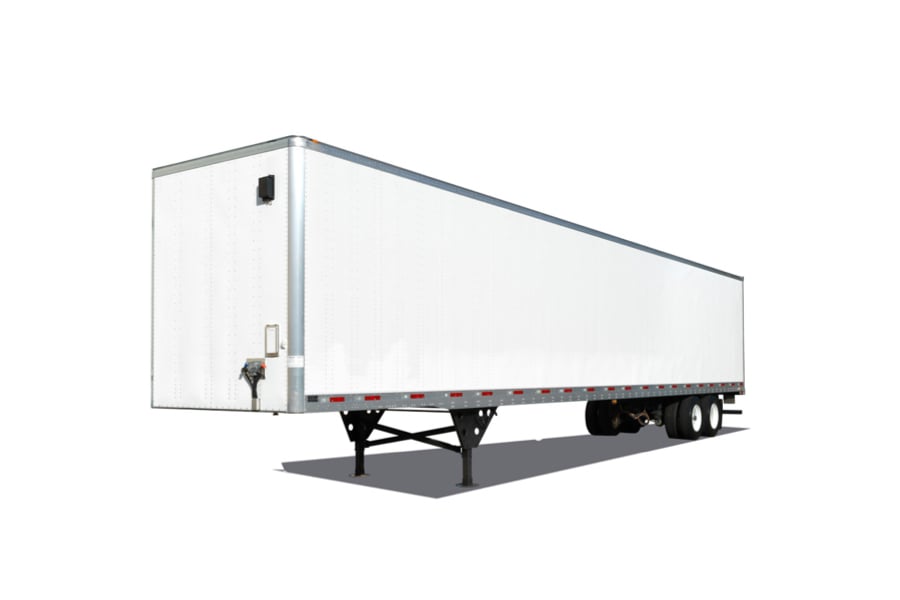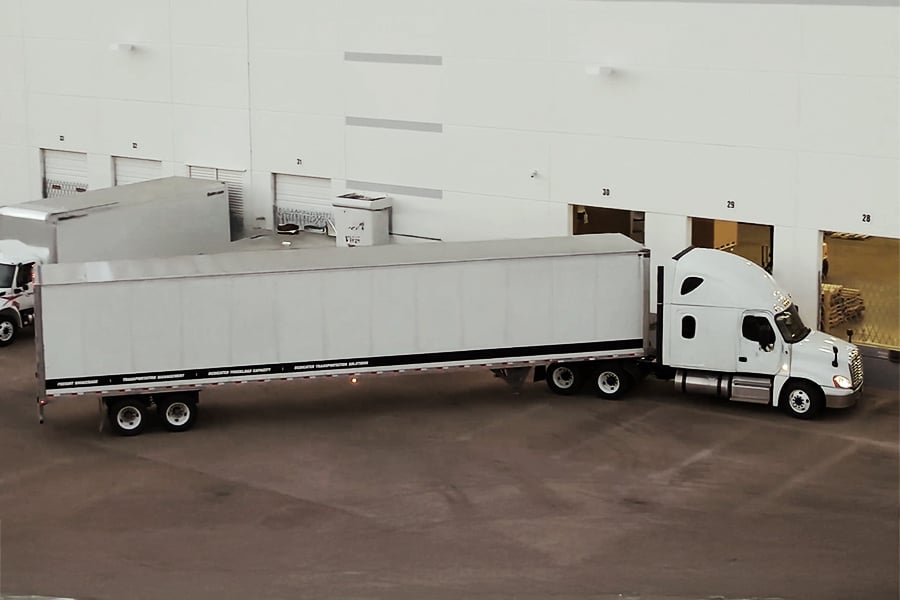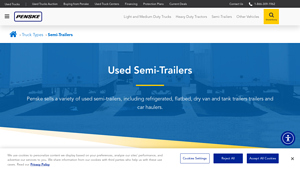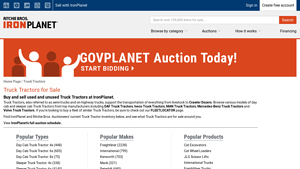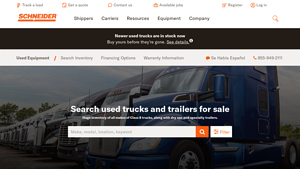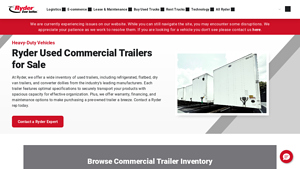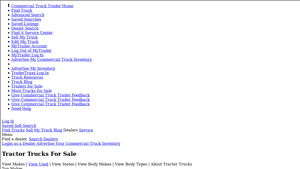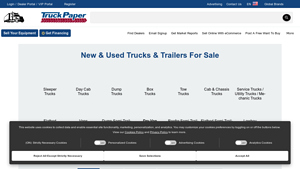Introduction: Navigating the Global Market for refurbished Tractor Truck Trailer
In today’s dynamic logistics landscape, sourcing high-quality refurbished tractor truck trailers can be a daunting challenge for international B2B buyers. With increasing demands for efficiency and cost-effectiveness in transportation, understanding the nuances of the refurbished market is essential for making sound purchasing decisions. This guide offers a comprehensive exploration of the various types of refurbished tractor truck trailers available, their specific applications, and best practices for supplier vetting.
From dry van trailers designed for non-temperature-sensitive goods to specialized refrigerated options for perishable items, we delve into the specifications that matter most to your operations. Additionally, we provide insights on cost considerations, financing options, and warranty services that can significantly impact your overall investment.
Equipped with this knowledge, B2B buyers from regions such as Africa, South America, the Middle East, and Europe—including markets like Vietnam and Saudi Arabia—can navigate the complexities of the refurbished truck trailer market with confidence. This guide not only empowers you to identify reputable suppliers but also enables you to make informed decisions that align with your business objectives and operational needs. By understanding the critical aspects of purchasing refurbished tractor truck trailers, you can enhance your fleet’s performance while optimizing your budget.
Understanding refurbished Tractor Truck Trailer Types and Variations
| Type Name | Key Distinguishing Features | Primary B2B Applications | Brief Pros & Cons for Buyers |
|---|---|---|---|
| Dry Van Trailers | Enclosed trailers designed for non-temperature-sensitive cargo. | General freight transport | Pros: Versatile, secure, and easy to load. Cons: Limited to dry goods. |
| Refrigerated Trailers | Insulated trailers with refrigeration units for temperature control. | Perishable goods transportation | Pros: Ideal for food and pharmaceuticals. Cons: Higher maintenance costs. |
| Flatbed Trailers | Open trailers with no sides, suitable for oversized loads. | Construction and heavy equipment haul | Pros: Flexible loading options. Cons: Less protection from weather. |
| Tank Trailers | Specialized for transporting liquids, including chemicals and fuels. | Bulk liquid transport | Pros: Efficient for liquid cargo. Cons: Requires specialized handling and safety protocols. |
| Car Haulers | Designed to transport multiple vehicles, typically equipped with ramps. | Automotive transport | Pros: Cost-effective for transporting multiple units. Cons: Limited to vehicle transport. |
What Are the Key Characteristics of Dry Van Trailers?
Dry van trailers are fully enclosed units that provide a secure environment for transporting a wide range of non-temperature-sensitive products. They are available in various sizes and configurations, making them suitable for businesses that require flexibility in cargo capacity. When considering a purchase, B2B buyers should evaluate the trailer’s interior dimensions, weight capacity, and overall condition to ensure it meets their specific logistics needs.
How Do Refrigerated Trailers Meet Temperature-Controlled Needs?
Refrigerated trailers, often referred to as reefers, are equipped with insulation and refrigeration units to maintain specific temperatures during transit. This makes them essential for transporting perishable goods like food, pharmaceuticals, and other temperature-sensitive items. Buyers should focus on the trailer’s refrigeration capabilities, including the efficiency of the unit and its maintenance history, to ensure compliance with health and safety regulations.
What Advantages Do Flatbed Trailers Offer for Heavy Loads?
Flatbed trailers are characterized by their open design, which allows for easy loading and unloading of oversized or heavy cargo. They are particularly popular in construction and heavy machinery transport due to their versatility. B2B buyers should consider the trailer’s weight rating and the availability of securement options, such as straps or chains, to ensure safe transport of their loads.
Why Choose Tank Trailers for Liquid Transport?
Tank trailers are designed specifically for transporting liquids, including chemicals, fuels, and food products. Their construction allows for the safe and efficient movement of bulk liquids, making them indispensable for many industries. Buyers must assess the trailer’s material and design for compatibility with the types of liquids they intend to transport, as well as check for any regulatory compliance requirements.
What Should B2B Buyers Know About Car Haulers?
Car haulers are specialized trailers designed for the transportation of multiple vehicles, often featuring ramps for easy loading. These trailers are ideal for businesses involved in automotive sales or auctions. When purchasing a car hauler, buyers should evaluate the trailer’s capacity, structural integrity, and any additional features that enhance loading efficiency, such as adjustable tie-down points.
Key Industrial Applications of refurbished Tractor Truck Trailer
| Industry/Sector | Specific Application of refurbished Tractor Truck Trailer | Value/Benefit for the Business | Key Sourcing Considerations for this Application |
|---|---|---|---|
| Logistics and Transportation | Transporting goods across borders and regions | Cost-effective shipping solutions, reduced operational costs | Compliance with international shipping regulations, warranty options |
| Agriculture | Hauling agricultural products and machinery | Enhanced productivity through reliable transportation | Load capacity, trailer type (flatbed vs. enclosed), maintenance history |
| Construction | Moving construction materials and equipment | Improved project timelines and efficiency | Durability, compatibility with various loads, inspection reports |
| Food and Beverage | Delivering temperature-sensitive goods using refrigerated trailers | Ensured product quality and compliance with health standards | Refrigeration capabilities, insulation quality, servicing records |
| Automotive | Transporting vehicles from manufacturers to dealerships | Streamlined logistics and reduced transportation costs | Vehicle capacity, trailer type (car hauler), condition of the trailer |
In the logistics and transportation sector, refurbished tractor truck trailers are utilized for transporting goods across various borders and regions. This application helps businesses achieve cost-effective shipping solutions while reducing operational costs. International buyers, especially from regions like Africa and South America, should consider compliance with international shipping regulations and warranty options when sourcing these trailers.
In agriculture, refurbished trailers play a critical role in hauling products and machinery. They enhance productivity by ensuring reliable transportation of perishable goods and heavy equipment. Buyers in this sector should focus on load capacity, the type of trailer needed (flatbed versus enclosed), and the maintenance history to ensure optimal performance.
The construction industry leverages refurbished tractor truck trailers to move construction materials and heavy equipment efficiently. This application is vital for improving project timelines and overall efficiency. Buyers should prioritize the durability of the trailers, compatibility with various loads, and thorough inspection reports to mitigate risks associated with equipment failure.
For the food and beverage industry, refrigerated trailers are essential for delivering temperature-sensitive products. This ensures product quality and compliance with health standards, which are critical for maintaining customer trust. Key sourcing considerations include the refrigeration capabilities of the trailer, insulation quality, and servicing records to ensure reliability.
Lastly, in the automotive sector, refurbished tractor truck trailers are used to transport vehicles from manufacturers to dealerships. This application helps streamline logistics and reduce transportation costs. Buyers should evaluate vehicle capacity, the specific type of trailer (like car haulers), and the overall condition of the trailer to ensure they meet their operational needs effectively.
3 Common User Pain Points for ‘refurbished Tractor Truck Trailer’ & Their Solutions
Scenario 1: Concerns Over Quality and Reliability of Refurbished Trailers
The Problem: Many B2B buyers are hesitant to invest in refurbished tractor truck trailers due to concerns about quality and reliability. This apprehension is particularly pronounced in regions where the road conditions can be harsh, such as in parts of Africa and South America. Buyers worry that refurbished units may not meet their performance standards or could lead to unexpected breakdowns, resulting in increased operational costs and diminished productivity.
The Solution: To mitigate these concerns, buyers should prioritize sourcing refurbished trailers from reputable vendors who offer detailed inspection reports and warranties. It’s essential to request a comprehensive history of the trailer, including the refurbishment process, parts replaced, and any certifications from authorized service centers. Additionally, engaging in third-party inspections can provide an extra layer of assurance. Buyers should also consider purchasing trailers that come with a maintenance package, ensuring regular check-ups and repairs are conducted, thereby enhancing reliability and performance over time.
Scenario 2: Navigating Regulatory Compliance and Import Challenges
The Problem: International buyers often face challenges related to regulatory compliance and import restrictions when purchasing refurbished tractor truck trailers. Different countries have varying standards for vehicle emissions, safety, and operational requirements. This complexity can lead to delays and additional costs, as buyers struggle to ensure that the trailers meet local regulations upon arrival.
The Solution: To navigate these challenges effectively, buyers should conduct thorough research on the specific regulations governing trailer imports in their region. It is advisable to work with a logistics partner experienced in handling vehicle imports, as they can provide guidance on necessary documentation and compliance checks. Additionally, buyers should seek vendors who are knowledgeable about international regulations and can guarantee that their refurbished trailers comply with these standards before shipping. Requesting documentation that certifies compliance can save time and prevent costly modifications post-purchase.
Scenario 3: Limited Availability of Specific Trailer Types for Unique Needs
The Problem: B2B buyers often have unique logistical requirements that necessitate specific types of trailers—such as refrigerated trailers for perishable goods or flatbeds for heavy machinery. However, the availability of these specialized refurbished trailers can be limited in certain markets, making it challenging to find equipment that meets operational needs without overspending on new models.
The Solution: Buyers should leverage online marketplaces and specialized auction platforms that focus on refurbished equipment. These platforms typically provide a broader selection of trailer types and can connect buyers with sellers from diverse geographical areas. Additionally, forming relationships with multiple suppliers can increase access to varied inventory. Buyers can also consider customizing existing refurbished trailers to better fit their needs. Working with a trusted mechanic to modify trailers can often be more cost-effective than purchasing new specialized units while still meeting operational requirements.
Strategic Material Selection Guide for refurbished Tractor Truck Trailer
What Are the Key Materials for Refurbished Tractor Truck Trailers?
When selecting materials for refurbished tractor truck trailers, it is essential to consider their properties, advantages, disadvantages, and suitability for various applications. Below are analyses of four common materials used in the construction and refurbishment of these trailers.
How Do Steel Properties Affect Refurbished Tractor Truck Trailers?
Steel is a widely used material in trailer construction due to its strength and durability. It typically exhibits high tensile strength and excellent impact resistance, making it suitable for heavy loads and harsh operating conditions. Steel can withstand high pressure and is relatively resistant to deformation.
Pros: Steel is cost-effective and readily available. Its durability ensures a long lifespan, which is crucial for B2B buyers looking for reliability in their fleets.
Cons: Steel is prone to corrosion, especially in humid or saline environments, which can increase maintenance costs. Additionally, it is heavier than other materials, potentially affecting fuel efficiency.
Impact on Application: Steel is compatible with various cargo types, including heavy machinery and bulk materials. However, buyers in regions with high humidity or salt exposure, such as coastal areas in Africa or the Middle East, should consider additional corrosion protection measures.
What Are the Advantages of Aluminum for Refurbished Tractor Truck Trailers?
Aluminum is another popular choice for trailer construction, particularly for components like bodies and frames. It is lightweight, which enhances fuel efficiency and payload capacity. Aluminum also offers excellent corrosion resistance, making it suitable for various environmental conditions.
Pros: The lightweight nature of aluminum contributes to lower operational costs and improved fuel efficiency. Its resistance to corrosion reduces maintenance and repair needs over time.
Cons: Aluminum can be more expensive than steel, and its lower tensile strength may limit its use in high-stress applications without proper reinforcement.
Impact on Application: Aluminum is ideal for transporting temperature-sensitive goods, as it can be easily insulated. Buyers from regions with strict weight regulations, such as Europe, may find aluminum trailers advantageous.
How Does Composite Material Benefit Refurbished Tractor Truck Trailers?
Composite materials, often made from a combination of fiberglass and resin, are increasingly used in trailer construction. These materials are lightweight and can be molded into various shapes, offering design flexibility.
Pros: Composites provide excellent resistance to corrosion and environmental degradation. They are also lightweight, contributing to better fuel efficiency and payload capacity.
Cons: The initial cost of composite materials can be high, and they may not be as structurally robust as steel or aluminum in heavy-duty applications.
Impact on Application: Composites are suitable for specialized applications, such as refrigerated trailers, where insulation and weight savings are critical. Buyers in regions with advanced logistics needs, such as South America, may find composites particularly beneficial.
What Role Does High-Strength Steel Play in Refurbished Tractor Truck Trailers?
High-strength steel (HSS) is an advanced material that combines the benefits of traditional steel with enhanced properties. It offers superior strength-to-weight ratios and improved resistance to deformation.
Pros: HSS allows for lighter trailer designs without sacrificing strength, leading to better fuel efficiency and payload capacity. It also offers excellent durability and resistance to wear.
Cons: The manufacturing process for HSS can be more complex, leading to higher costs. Additionally, it may require specialized welding techniques, which could complicate repairs.
Impact on Application: HSS is particularly suitable for heavy-duty applications, such as flatbed trailers carrying oversized loads. International buyers should ensure compliance with local standards and regulations for HSS use.
Summary Table of Material Selection for Refurbished Tractor Truck Trailers
| Material | Typical Use Case for refurbished Tractor Truck Trailer | Key Advantage | Key Disadvantage/Limitation | Relative Cost (Low/Med/High) |
|---|---|---|---|---|
| Steel | General trailer frames and bodies | High durability and strength | Prone to corrosion | Medium |
| Aluminum | Lightweight trailers for temperature-sensitive cargo | Excellent corrosion resistance | Higher initial cost | High |
| Composite | Refrigerated trailers and specialized applications | Lightweight and design flexibility | Higher initial cost | High |
| High-Strength Steel | Heavy-duty flatbed trailers | Superior strength-to-weight ratio | Complex manufacturing process | Medium |
This strategic material selection guide provides valuable insights for international B2B buyers, allowing them to make informed decisions based on their specific operational needs and regional considerations.
In-depth Look: Manufacturing Processes and Quality Assurance for refurbished Tractor Truck Trailer
What Are the Key Stages in the Manufacturing Process of Refurbished Tractor Truck Trailers?
The manufacturing process for refurbished tractor truck trailers typically involves several critical stages that ensure the final product meets both safety and performance standards. These stages include material preparation, forming, assembly, and finishing.
-
Material Preparation: This initial phase involves sourcing high-quality materials to replace or repair worn-out components. Materials such as high-strength steel, aluminum, and composite materials are often used. Suppliers should provide certification for the materials used, ensuring they meet industry standards. B2B buyers should verify that materials are sourced from reputable suppliers, as the quality of materials directly impacts the durability and performance of the trailer.
-
Forming: In this stage, the prepared materials are shaped into the necessary components of the trailer. Techniques such as bending, cutting, and welding are commonly employed. Advanced technologies like CNC machining and laser cutting are increasingly used to enhance precision. Buyers should look for manufacturers that utilize modern equipment, as this often correlates with higher quality and more reliable products.
-
Assembly: Once the components are formed, they are assembled to create the trailer. This process can be manual or automated, with automated assembly lines providing consistency and efficiency. Quality control during assembly is crucial, as this is where many defects can occur. B2B buyers should inquire about the assembly process and whether skilled technicians oversee the operation, as well-trained personnel are vital for maintaining quality standards.
-
Finishing: The final stage involves applying protective coatings, painting, and other finishing touches that enhance both aesthetics and durability. This may include galvanizing for corrosion resistance or applying specialized paints that withstand harsh environmental conditions. Buyers should verify that the finishing processes meet international standards, as this can significantly extend the lifespan of the trailer.
How Is Quality Assurance Implemented in Refurbished Tractor Truck Trailers?
Quality assurance (QA) is an essential aspect of the manufacturing process for refurbished tractor truck trailers. It ensures that the trailers meet both safety standards and customer expectations. The following are key components of a robust QA framework.
-
International Standards Compliance: Many manufacturers adhere to international quality standards such as ISO 9001, which outlines the criteria for a quality management system. Compliance with ISO 9001 indicates that a company is focused on meeting customer needs and enhancing satisfaction. Additionally, industry-specific certifications like CE marking for safety and API standards for oil and gas applications may also apply depending on the trailer’s intended use.
-
Quality Checkpoints: Throughout the manufacturing process, several quality checkpoints are implemented:
– Incoming Quality Control (IQC): This initial inspection verifies the quality of raw materials and components before they enter the production line. Ensuring that only high-quality materials are used is critical for the final product’s integrity.
– In-Process Quality Control (IPQC): During manufacturing, continuous checks are performed to identify and rectify issues as they arise. This proactive approach helps minimize defects and ensures that the assembly process adheres to specifications.
– Final Quality Control (FQC): Once the trailer is fully assembled, a comprehensive inspection is conducted to ensure it meets all quality standards. This may include functionality tests, visual inspections, and load testing to ensure the trailer can handle its intended capacity. -
Common Testing Methods: Various testing methods are employed to assess the quality and safety of refurbished trailers. These may include:
– Load Testing: Ensuring that the trailer can handle its rated load capacity without structural failure.
– Functional Testing: Checking all mechanical and electrical systems, including brakes, lights, and suspension components.
– Corrosion Resistance Testing: Evaluating the effectiveness of protective coatings against corrosion, especially for trailers used in harsh environments.
How Can B2B Buyers Verify Supplier Quality Control Processes?
To ensure that they are purchasing high-quality refurbished tractor truck trailers, B2B buyers should take the following steps to verify the quality control processes of potential suppliers:
-
Conduct Supplier Audits: Before finalizing a purchase, buyers should consider conducting an audit of the manufacturing facility. This allows them to assess the quality management systems in place and verify compliance with international standards.
-
Request Quality Assurance Documentation: Buyers should ask suppliers for documentation related to quality assurance processes, including inspection reports, test results, and compliance certifications. This documentation serves as proof of the manufacturer’s commitment to quality.
-
Engage Third-Party Inspectors: Utilizing third-party inspection services can provide an unbiased evaluation of the trailer’s quality. These inspectors can perform thorough checks at various stages of the manufacturing process, ensuring that the trailers meet specified standards.
-
Evaluate Customer Feedback and References: Buyers should seek feedback from previous customers to gauge the supplier’s reliability and product quality. Testimonials and case studies can provide valuable insights into the manufacturer’s performance and customer satisfaction levels.
What Quality Control Nuances Should International Buyers Consider?
International B2B buyers, particularly those from regions like Africa, South America, the Middle East, and Europe, should be aware of specific nuances related to quality control:
-
Regional Compliance Standards: Different regions may have unique compliance requirements. For instance, trailers intended for the European market must adhere to strict EU safety and environmental regulations. Buyers should familiarize themselves with these requirements to ensure compliance.
-
Import Regulations: Understanding import regulations in the buyer’s country is crucial, as non-compliance can lead to delays or additional costs. Buyers should work closely with customs brokers to navigate these complexities.
-
Cultural Differences in Quality Expectations: Quality expectations may vary by region. Buyers should clearly communicate their quality standards and expectations to suppliers to avoid misunderstandings.
-
Post-Purchase Support: Buyers should inquire about the availability of post-purchase support, including warranties and maintenance services. A solid after-sales support system can significantly impact the overall ownership experience of refurbished trailers.
By comprehensively understanding the manufacturing processes and quality assurance practices for refurbished tractor truck trailers, B2B buyers can make informed purchasing decisions that align with their operational needs and standards.
Practical Sourcing Guide: A Step-by-Step Checklist for ‘refurbished Tractor Truck Trailer’
To assist B2B buyers in navigating the procurement of refurbished tractor truck trailers effectively, this guide offers a clear, actionable checklist. The following steps will ensure that you make informed decisions, optimize your investment, and secure a reliable asset for your operations.
Step 1: Define Your Technical Specifications
Begin by outlining the specific requirements for your refurbished tractor truck trailer. Consider factors such as payload capacity, trailer type (e.g., dry van, refrigerated, flatbed), and compatibility with existing vehicles in your fleet. Clearly defined specifications help streamline the search process and ensure that the selected trailer meets your operational needs.
Step 2: Research Reputable Suppliers
Conduct thorough research to identify suppliers with a strong reputation in the market. Look for companies that specialize in refurbished trailers and have positive reviews from previous buyers. Key points to consider include:
– Industry Experience: Choose suppliers with a proven track record in the sector.
– Certifications: Verify if they hold industry certifications or affiliations that indicate quality standards.
Step 3: Evaluate Potential Suppliers
Before finalizing your choice, it’s essential to vet potential suppliers. Request detailed company profiles, case studies, and references from other clients in similar industries or regions. This step is crucial as it provides insight into the supplier’s reliability and the quality of their offerings. Additionally, visit their facilities if possible to assess the condition of their inventory firsthand.
Step 4: Inspect the Refurbished Trailers
Once you have shortlisted suppliers, arrange for inspections of the refurbished trailers. Inspections should cover critical aspects such as:
– Structural Integrity: Check for signs of damage or excessive wear.
– Mechanical Functionality: Ensure that all operational components, such as brakes and lights, are in good working order.
– Documentation: Request service history and refurbishment details to understand the extent of work done on the trailer.
Step 5: Review Warranty and Service Options
Examine the warranty and service options offered by the supplier. A robust warranty can provide peace of mind, protecting your investment against unforeseen issues. Look for:
– Coverage Duration: Longer warranty periods are preferable.
– Service Plans: Consider if the supplier offers maintenance services or support options post-purchase.
Step 6: Negotiate Terms and Finalize Purchase
Engage in negotiations with the selected supplier to secure the best possible terms. Discuss pricing, payment options, and delivery logistics. Ensure clarity on all aspects, including:
– Total Costs: Verify if there are any hidden fees or additional charges.
– Delivery Timeline: Confirm the expected delivery schedule to align with your operational requirements.
Step 7: Plan for Integration into Your Fleet
After completing the purchase, strategize how to incorporate the refurbished trailer into your existing fleet. This includes training your drivers on the trailer’s specifications and ensuring it meets regulatory compliance. Proper integration is key to maximizing the efficiency and longevity of your investment.
By following these steps, you can navigate the procurement process for refurbished tractor truck trailers with confidence, ensuring that your investment supports your business objectives effectively.
Comprehensive Cost and Pricing Analysis for refurbished Tractor Truck Trailer Sourcing
What Are the Key Cost Components in Refurbished Tractor Truck Trailers?
When sourcing refurbished tractor truck trailers, understanding the cost structure is crucial. The primary components influencing the cost include:
-
Materials: The quality of materials used for refurbishment significantly impacts the overall cost. High-grade components may lead to higher upfront costs but can enhance durability and performance.
-
Labor: Labor costs encompass the wages of skilled technicians involved in the refurbishment process. Skilled labor is essential for quality assurance and can vary widely based on geographical location.
-
Manufacturing Overhead: This includes costs related to the operation of the refurbishment facility, such as utilities, maintenance, and equipment depreciation. Efficient operations can help keep these costs down.
-
Tooling: The cost of tools and equipment necessary for refurbishment also needs to be considered. Specialized tools for specific modifications can add to the initial costs.
-
Quality Control (QC): Implementing a robust QC process ensures that each trailer meets industry standards. Investing in QC can prevent costly post-sale issues.
-
Logistics: Transportation costs for delivering the refurbished trailers to buyers can vary based on distance and the logistics provider. This should be factored into the total cost.
-
Margin: Suppliers typically add a margin to cover their costs and generate profit. Understanding the typical margin in your region can aid in negotiation.
How Do Price Influencers Affect Refurbished Tractor Truck Trailer Pricing?
Several factors influence the pricing of refurbished tractor truck trailers, which can affect your sourcing strategy:
-
Volume/MOQ: Purchasing in bulk often leads to discounts. Understanding the minimum order quantities (MOQ) can help in negotiating better prices.
-
Specifications and Customization: Custom features or specific specifications may increase costs. Clearly defining your needs can prevent unexpected expenses.
-
Materials: The choice between standard and premium materials can significantly affect pricing. Buyers should weigh the long-term benefits of higher-quality materials against initial costs.
-
Quality and Certifications: Trailers with certifications or those that meet specific quality standards may command higher prices but often provide better reliability and resale value.
-
Supplier Factors: The reputation and reliability of the supplier can impact pricing. Established suppliers may offer better warranties and customer service, justifying a higher price.
-
Incoterms: Understanding delivery terms, such as FOB (Free on Board) or CIF (Cost, Insurance, and Freight), is essential. These terms dictate who bears shipping costs and risks, influencing the total landed cost.
What Are Effective Buyer Tips for Negotiating Prices on Refurbished Tractor Truck Trailers?
For international B2B buyers, especially those from Africa, South America, the Middle East, and Europe, effective negotiation and cost-efficiency strategies are vital:
-
Negotiate Wisely: Don’t accept the first price. Engage in negotiations to explore discounts, especially if purchasing multiple units or if you have a long-term purchasing plan.
-
Evaluate Total Cost of Ownership (TCO): Consider not just the purchase price but also the long-term costs associated with maintenance, fuel efficiency, and depreciation when assessing value.
-
Understand Pricing Nuances: Be aware of regional pricing trends and market conditions. Prices can vary significantly based on local demand, economic conditions, and currency fluctuations.
-
Conduct Thorough Research: Compare offerings from multiple suppliers and platforms. Utilize available resources, such as online marketplaces, to gauge average pricing and inventory levels.
-
Utilize Technology: Leverage digital tools for inspections and assessments, such as virtual inspections or detailed online listings, to make informed decisions without incurring travel costs.
Conclusion
In the dynamic market of refurbished tractor truck trailers, understanding the cost structure and pricing influencers is essential for making informed purchasing decisions. By applying strategic negotiation tactics and considering the total cost of ownership, international B2B buyers can maximize value while minimizing costs. Always keep in mind that prices can vary significantly based on numerous factors, so thorough research and careful planning are key to successful sourcing.
Alternatives Analysis: Comparing refurbished Tractor Truck Trailer With Other Solutions
Exploring Alternative Solutions to Refurbished Tractor Truck Trailers
In the competitive landscape of logistics and transportation, businesses often seek various solutions to optimize their operations. While refurbished tractor truck trailers offer significant benefits, it’s essential to explore alternative options that may better suit specific needs, budgets, or operational requirements. This analysis compares refurbished tractor truck trailers with two viable alternatives: new tractor truck trailers and leasing options.
| Comparison Aspect | Refurbished Tractor Truck Trailer | New Tractor Truck Trailer | Leasing Options |
|---|---|---|---|
| Performance | Reliable performance; often updated components | High performance with the latest technology | Varies by model; often newer vehicles |
| Cost | Lower upfront cost; potential savings | Higher initial investment | Lower initial cost; monthly payments |
| Ease of Implementation | Quick to acquire; ready for use | Longer lead time for delivery | Simple process; immediate access to vehicles |
| Maintenance | May require more frequent repairs; warranty options available | Typically lower maintenance in initial years | Maintenance often included in lease terms |
| Best Use Case | Cost-effective for established fleets needing upgrades | Ideal for companies wanting latest technology | Suitable for businesses with fluctuating needs or budgets |
What Are the Advantages and Disadvantages of New Tractor Truck Trailers?
New tractor truck trailers come equipped with the latest technology and performance features. They generally provide better fuel efficiency, lower emissions, and enhanced safety features. However, the primary drawback is the high upfront cost, which can strain budgets, especially for small to medium-sized enterprises. Additionally, the delivery time for new vehicles may be longer, affecting immediate operational needs.
How Do Leasing Options Compare to Refurbished Tractor Truck Trailers?
Leasing options offer a flexible alternative for businesses that may not want to commit to a purchase. This approach allows companies to access high-quality vehicles without the burden of large upfront costs. Maintenance is often included in leasing agreements, reducing unexpected expenses. However, the long-term costs can accumulate, and businesses do not build equity in the vehicle. Leasing may also limit customization options compared to ownership.
Conclusion: How to Choose the Right Solution for Your Business Needs?
When deciding between refurbished tractor truck trailers and alternative solutions, B2B buyers should consider their operational needs, budget constraints, and long-term goals. Refurbished trailers provide an excellent balance of affordability and functionality, making them ideal for businesses looking to upgrade their fleet without a significant financial burden. Conversely, if the latest technology and lower maintenance costs are priorities, investing in new trailers might be advantageous. For companies with dynamic needs or cash flow concerns, leasing can offer the flexibility to adapt quickly. Ultimately, the right choice will depend on the specific operational requirements and financial strategy of the business.
Essential Technical Properties and Trade Terminology for refurbished Tractor Truck Trailer
What Are the Key Technical Properties of Refurbished Tractor Truck Trailers?
When considering the purchase of refurbished tractor truck trailers, understanding critical specifications is vital for ensuring that the vehicles meet operational needs and industry standards. Here are some essential technical properties to evaluate:
-
Material Grade
The material grade of a trailer primarily refers to the quality and type of steel or aluminum used in its construction. High-grade materials enhance durability and longevity, which are crucial for heavy-duty applications. For B2B buyers, investing in trailers made from superior materials can reduce maintenance costs and increase safety, ultimately leading to better ROI. -
Load Capacity
Load capacity indicates the maximum weight a trailer can safely carry, including cargo and the trailer’s own weight. This specification is critical for ensuring compliance with local regulations and operational efficiency. Buyers must align the load capacity with their transportation needs to avoid penalties and operational disruptions. -
Tare Weight
The tare weight is the weight of the trailer without any cargo. Understanding tare weight helps in calculating the total weight when loaded. For businesses, knowing the tare weight is essential for maximizing payload efficiency and adhering to weight regulations, ensuring that they can transport the maximum amount of goods legally and safely. -
Axle Configuration
The axle configuration refers to the number and arrangement of axles on the trailer. Common configurations include single, tandem, or tri-axle setups. Each configuration has implications for load distribution, stability, and maneuverability. Buyers should consider axle configuration based on the types of loads they will be transporting and the terrains they will navigate. -
Brake System Type
The type of brake system installed on a trailer can significantly impact safety and performance. Common systems include air brakes and hydraulic brakes, each with distinct advantages and maintenance needs. Buyers must assess their operational requirements and ensure that the brake system is compliant with local safety standards. -
Suspension Type
The suspension system affects ride quality, load stability, and overall handling. Options include leaf spring, air ride, and rubber suspension systems. Choosing the right suspension type can enhance cargo safety and reduce wear on both the trailer and the tractor, which is essential for fleet longevity.
What Are the Common Trade Terms Relevant to Refurbished Tractor Truck Trailers?
In the B2B landscape, familiarity with industry jargon can streamline negotiations and transactions. Here are some common trade terms you should know:
-
OEM (Original Equipment Manufacturer)
OEM refers to companies that produce parts and equipment that may be marketed by another manufacturer. In the context of refurbished trailers, understanding OEM specifications ensures that replacements and parts are compatible and of high quality, which is crucial for maintaining performance and safety. -
MOQ (Minimum Order Quantity)
MOQ is the smallest number of units a supplier is willing to sell. Knowing the MOQ helps businesses plan purchases effectively and negotiate better deals. For buyers in international markets, MOQs can impact shipping logistics and inventory management. -
RFQ (Request for Quotation)
An RFQ is a document used to solicit price proposals from suppliers. By issuing an RFQ, buyers can compare pricing and terms from multiple vendors, which is essential for making informed purchasing decisions. -
Incoterms
International Commercial Terms (Incoterms) are standardized trade terms used in international shipping to define the responsibilities of buyers and sellers. Understanding Incoterms is crucial for clarifying shipping costs, risk, and delivery responsibilities, especially for international buyers from regions like Africa and South America. -
Warranty
A warranty is a guarantee provided by the seller regarding the condition and performance of the trailer. In the refurbished market, warranties can vary significantly, making it essential for buyers to assess warranty terms to protect their investments. -
Fleet Management
Fleet management encompasses the management of a company’s vehicle fleet. Understanding fleet management principles can help buyers optimize their operations and improve efficiency, particularly when incorporating refurbished trailers into their existing fleet.
By comprehensively understanding these technical properties and trade terms, B2B buyers can make informed decisions that align with their operational needs and strategic goals in the market for refurbished tractor truck trailers.
Navigating Market Dynamics and Sourcing Trends in the refurbished Tractor Truck Trailer Sector
What Are the Key Drivers Influencing the Refurbished Tractor Truck Trailer Market?
The global market for refurbished tractor truck trailers is experiencing significant growth, driven by various factors. Economic constraints in regions like Africa, South America, and the Middle East compel businesses to seek cost-effective solutions, making refurbished trailers an attractive option. Additionally, advancements in technology facilitate better inspection, refurbishment processes, and online marketplaces, allowing buyers to assess quality and negotiate prices more effectively. The increasing demand for logistics and transportation services further propels this market, as businesses aim to expand their fleets without incurring the high costs associated with new vehicles.
Emerging trends in digital sourcing are also reshaping how international buyers engage with suppliers. Platforms offering virtual inspections, comprehensive vehicle histories, and financing options are becoming prevalent, enhancing the buying experience. In regions like Europe and the Middle East, where regulatory compliance is critical, buyers are increasingly focusing on sourcing from certified refurbishers who adhere to stringent quality standards. The integration of data analytics into inventory management and purchasing decisions is another trend, enabling buyers to make informed choices based on market dynamics and historical data.
How Is Sustainability Shaping Sourcing Decisions for Refurbished Tractor Truck Trailers?
Sustainability has become a pivotal concern for B2B buyers in the refurbished tractor truck trailer sector. The environmental impact of manufacturing new trailers, coupled with the growing pressure for businesses to adopt greener practices, is pushing buyers toward refurbished options. Refurbished trailers not only extend the lifecycle of existing vehicles but also reduce waste and energy consumption associated with new production.
Ethical sourcing is gaining traction as businesses seek to align their procurement strategies with corporate social responsibility goals. Buyers are increasingly interested in suppliers who demonstrate a commitment to sustainable practices, such as using eco-friendly materials in refurbishment processes or obtaining certifications that verify their adherence to environmental standards. Certifications like ISO 14001 for environmental management and LEED for sustainable building practices are becoming essential for suppliers looking to attract discerning B2B clients. By prioritizing sustainable and ethical sourcing, businesses not only enhance their brand reputation but also contribute to a more sustainable logistics ecosystem.
What Historical Context Is Important for Understanding the Refurbished Tractor Truck Trailer Sector?
The history of the refurbished tractor truck trailer sector can be traced back to the rising costs of new vehicles and the need for efficient logistics solutions. As global trade expanded, particularly in developing regions, businesses recognized the potential of refurbished trailers as a viable alternative to new purchases. Over the years, advancements in technology have improved refurbishment techniques, enabling suppliers to provide high-quality vehicles that meet the demands of modern logistics.
The evolution of online marketplaces has further transformed the sector, allowing buyers from diverse geographical locations to access a wide range of refurbished options. This accessibility has led to increased competition among suppliers, fostering innovation and improved service delivery. Today, the refurbished tractor truck trailer market stands as a testament to the industry’s adaptability, responding to economic pressures, technological advancements, and a heightened focus on sustainability and ethical sourcing.
Frequently Asked Questions (FAQs) for B2B Buyers of refurbished Tractor Truck Trailer
-
How do I ensure the quality of a refurbished Tractor Truck Trailer?
To ensure the quality of a refurbished Tractor Truck Trailer, it’s crucial to work with reputable suppliers who provide detailed inspection reports and certifications. Request a comprehensive vehicle history report, including previous maintenance records and any refurbishments made. Engage in third-party inspections if possible, and consider suppliers who offer warranties or guarantees on their refurbished vehicles. Additionally, verify the supplier’s reputation through reviews and testimonials from other international buyers. -
What are the key features to look for in a refurbished Tractor Truck Trailer?
When sourcing a refurbished Tractor Truck Trailer, prioritize features such as engine performance, trailer condition, and compatibility with your fleet. Look for high-quality materials and construction, as well as modern technology for fuel efficiency and safety. Ensure that the trailer meets international safety standards and regulations relevant to your region. Check for customizable options that suit your specific cargo needs, such as refrigerated units or flatbed designs, to maximize utility. -
What are typical payment terms when buying refurbished Tractor Truck Trailers internationally?
Payment terms for international purchases of refurbished Tractor Truck Trailers can vary significantly. Commonly, suppliers may require a deposit upfront (ranging from 10-30%) with the balance due upon delivery or after successful inspection. It’s advisable to negotiate terms that suit your cash flow, potentially leveraging letters of credit or escrow services for added security. Always clarify the payment methods accepted and ensure transparency regarding any additional costs such as customs duties or shipping fees. -
How can I vet suppliers for refurbished Tractor Truck Trailers?
Vetting suppliers involves thorough research and due diligence. Start by checking their business credentials, including registration and licensing. Look for industry affiliations and certifications that indicate reliability. Request references from previous clients, particularly those from your region or industry. Conduct online searches for reviews and complaints. Engaging in direct communication with the supplier can also provide insights into their responsiveness and customer service quality. -
What is the minimum order quantity (MOQ) for refurbished Tractor Truck Trailers?
The minimum order quantity (MOQ) for refurbished Tractor Truck Trailers can vary by supplier. Some may allow single-unit purchases, while others may have higher MOQs, especially for customized trailers. If you are looking to purchase multiple units, negotiating the MOQ can be beneficial. It’s wise to discuss your needs upfront and inquire about bulk purchase discounts or financing options that could ease the acquisition of larger orders. -
What logistics considerations should I keep in mind when importing refurbished Tractor Truck Trailers?
Logistics is crucial when importing refurbished Tractor Truck Trailers. Consider shipping methods, including container shipping or roll-on/roll-off options, and assess the associated costs. Understand the customs regulations of your destination country, including tariffs and documentation required for importation. Partnering with a logistics provider experienced in international freight can simplify the process, ensuring timely delivery and compliance with all regulations. -
Can I customize a refurbished Tractor Truck Trailer to meet my specific needs?
Yes, many suppliers offer customization options for refurbished Tractor Truck Trailers. Depending on the supplier, you may be able to choose specific configurations, such as trailer length, type (e.g., flatbed or refrigerated), and additional features like ramp systems or storage compartments. Discuss your requirements with the supplier early in the process to ensure that the customization can be accommodated within your budget and timeline. -
What quality assurance measures should I expect when buying refurbished Tractor Truck Trailers?
Quality assurance measures typically include comprehensive inspections and certifications prior to sale. Reputable suppliers should provide documentation detailing the refurbishment process, including any parts replaced or repaired. Look for warranties that cover key components, and inquire about after-sales support. Some suppliers may also offer return policies or service agreements to ensure that you receive a vehicle that meets your operational standards.
Important Disclaimer & Terms of Use
⚠️ Important Disclaimer
The information provided in this guide, including content regarding manufacturers, technical specifications, and market analysis, is for informational and educational purposes only. It does not constitute professional procurement advice, financial advice, or legal advice.
While we have made every effort to ensure the accuracy and timeliness of the information, we are not responsible for any errors, omissions, or outdated information. Market conditions, company details, and technical standards are subject to change.
B2B buyers must conduct their own independent and thorough due diligence before making any purchasing decisions. This includes contacting suppliers directly, verifying certifications, requesting samples, and seeking professional consultation. The risk of relying on any information in this guide is borne solely by the reader.
Top 6 Refurbished Tractor Truck Trailer Manufacturers & Suppliers List
1. Penske – Used Semi-Trailers
Domain: penskeusedtrucks.com
Registered: 2001 (24 years)
Introduction: Penske sells a variety of used semi-trailers, including: 1. Used Dry Van Trailers: Used to haul non-temperature-sensitive products, available in various height, length, and width combinations. 2. Used Flatbed Trailers: Designed for heavy loads with an open top and sides, may include removable side racks or straps for securing payloads. 3. Used Refrigerated Trailers: Equipped with an insulated carg…
2. Truck Tractors – IronPlanet
Domain: ironplanet.com
Registered: 1999 (26 years)
Introduction: Truck Tractors for Sale at IronPlanet include various models of day cab and sleeper cab trucks from top manufacturers such as DAF, Iveco, MAN, Mercedes-Benz, and Volvo. Popular types include Day Cab Truck Tractors (4x, 6x, 8x) and Sleeper Truck Tractors (4x, 6x, 8x). The inventory features popular makes like Freightliner (2238), International (799), Kenworth (703), Mack (321), Peterbilt (680), and…
3. Schneider Trucks – Class 8 Trucks & Trailers
Domain: schneidertrucks.com
Registered: 2011 (14 years)
Introduction: Wide selection of all makes of Class 8 trucks and trailers including day cab semi trucks, sleeper semi trucks, dry van trailers, flatbed trailers, specialty trailers, and tank trailers. Featured brands include Freightliner, International, Volvo, Great Dane, Hyundai, Peterbilt, Wabash, and more. Newer used trucks available, many 2023 and 2024 models with as low as 200,000 miles. Financing options a…
4. Ryder – Used Trailers
Domain: ryder.com
Registered: 1995 (30 years)
Introduction: Ryder offers a wide inventory of used trailers, including refrigerated, flatbed, dry van trailers, and converter dollies from leading manufacturers. Each trailer features optimal specifications for secure transport and spacious capacity for effective organization. Ryder provides warranty, financing, and maintenance options for pre-owned trailers. Financing includes low monthly payments, quick proc…
5. Freightliner – Tractor Trucks For Sale
Domain: commercialtrucktrader.com
Registered: 2004 (21 years)
Introduction: Tractor Trucks For Sale – Commercial Truck Trader
Key Makes:
– FREIGHTLINER (3,707)
– INTERNATIONAL (785)
– VOLVO (448)
– KENWORTH (312)
– PETERBILT (278)
– MACK (104)
– WESTERN STAR (35)
– STERLING (12)
– KALMAR (7)
Available Colors:
– MORGAN (63)
– SUPREME (49)
– KIDRON (6)
– OTHER (MISC) (5)
– UNKNOWN (3)
– LANAU (2)
– SAGE OIL VAC (2)
– A M HAIRE (1)
– BABCO (1)
– ROGERS (1)
Sample Listings…
6. TruckPaper – Trucks and Trailers for Sale
Domain: truckpaper.com
Registered: 1996 (29 years)
Introduction: TruckPaper.com offers a wide range of new and used trucks and trailers for sale, including categories such as Sleeper Trucks, Day Cab Trucks, Dump Trucks, Box Trucks, Tow Trucks, and various types of Semi-Trailers (e.g., Dry Van, Reefer, Flatbed). Popular brands include Freightliner, International, Ford, Peterbilt, Kenworth, Mack, GMC, Volvo, Isuzu, Hino, Chevrolet, Fontaine, Utility, Dorsey, Grea…
Strategic Sourcing Conclusion and Outlook for refurbished Tractor Truck Trailer
In summary, strategic sourcing of refurbished tractor truck trailers offers significant advantages for international B2B buyers, especially in regions like Africa, South America, the Middle East, and Europe. By leveraging a well-defined procurement strategy, businesses can access high-quality, cost-effective vehicles that meet their operational needs while minimizing risks associated with purchasing used equipment.
Key takeaways include understanding the importance of thorough inspections, leveraging reputable suppliers, and utilizing online marketplaces that facilitate transparent negotiations and transactions. These practices not only enhance procurement efficiency but also ensure compliance with local regulations and standards.
Looking ahead, the market for refurbished tractor truck trailers is poised for growth, driven by increasing demand for sustainable transport solutions and economic pressures to optimize logistics costs. International buyers are encouraged to explore diverse sourcing options, engage with trusted partners, and stay informed about market trends to capitalize on emerging opportunities. Take the next step in enhancing your fleet—invest in refurbished trailers and drive your business forward with confidence.

